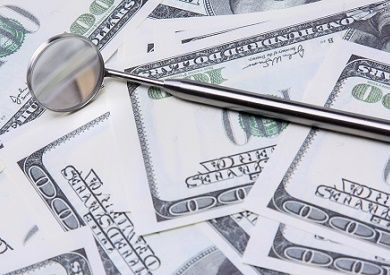The Dental Specialty that Earns the Most
A research brief published by the American Dental Association's Health Policy institute shows which dental specialists earn the most. The report looked at the average annual income for oral surgeons, endodontists, orthodontists, periodontists and pediatric dentists. The study also looked at how busy the specialists consider themselves to be.

It pays to specialize. Oral surgeons, according to the American Dental Association, are the best-paid dental specialists.
A recent research brief from the American Dental Association’s Health Policy Institute shows that oral surgeons consistently earn more than their colleagues in other dental specialties. The brief focused on the average annual net income for five dental specialties: oral surgeons, endodontists, orthodontists, periodontists, and pediatric dentists.
The brief included data on earnings and busyness levels from 2000 to 2015. Oral surgeons enjoyed the highest earnings in 2008 at $568,968, but that income level dropped to $399,171 in 2010 after the start of the Great Recession. The data also suggested that the other dental specialties had their highest earning years before the Recession, while income levels fell to their lowest recorded earnings levels in the last four years.
The brief also looked at data on dentists’ perceived busyness levels. For each year included, orthodontists reported not being busy enough compared to the other dental specialties. The percentage of both oral surgeons and orthodontists who report not being busy enough also increased from 2014.
After several years of decline, average net income and busyness levels seem to have stabilized, especially from 2010 — 2013. Data from 2014 and 2015 indicate that income levels among the five dental specialties have begun to rebound from their lowest points during the Great Recession, but the gains are still modest.
It appears income level is influenced by a variety of factors, including average appointment wait time, busyness level, patient volume, and the number of dental specialists in a geographical area. A shift from small practices to larger, more consolidated practices could also be a factor in the increase in dental income levels.
Data was collected for the brief using the Survey of Dental Practice, which is conducted each year and obtains information from a random sample of 4,000 to 17,000 dentists in private practice. This survey oversampled dental specialists to ensure enough data was collected for statistical analysis.